SUMMARY
This is AI generated summarization, which may have errors. For context, always refer to the full article.
Retired senior associate justice Antonio Carpio urged the Supreme Court to exercise an extraordinary power and investigate the killings in Calabarzon, where search warrants issued by judges allowed government operations that led to the death of 9 activists.
“The fact that the search warrants were served by police and military personnel, who are under the Executive branch of the government, does not excuse the Supreme Court from investigating the killings, which happened while judicial warrants were being served,” Carpio said in his column published on the Philippine Daily Inquirer on Thursday, March 18.
Carpio said this following a report from Court Administrator Midas Marquez that distanced the lower court judges who issued the search warrants, from the killings.
“The issuance of the search warrants by the judges and their service or implementation by the law enforcers are two different acts. The issuance of search warrants is judicial in nature,” Marquez had said in his report to Chief Justice Diosdado Peralta.
Marquez also said in the report that to act on the issuances would preempt cases that may be filed before the lower courts, either by the victims against the cops or vice versa.
“Speculative at this point not to conduct administrative investigation just because of potential criminal cases that may be filed in the future,” Carpio told Rappler when asked about Marquez’s report.
Carpio said “the investigation is for administrative purposes to consider issuance of new rules on service of summons.”
On whether the potential new rules will be applied prospectively, which will not affect any potential cases that may be filed, Carpio said, “Right, and besides there are no cases yet filed and there may be no cases filed by prosecutors of the Department of Justice (DOJ).”
‘A cop-out’
Bayan secretary general Renato Reyes described Marquez’s report as “a cop-out.”
“It’s a cop-out. Naghugas kamay ang Office of the Court Administrator (The Office of the Court Administrator is washing its hands). Why is there no investigation into the issuance of the search warrants? Presumption of regularity? In a time when people are being killed?” Reyes said in a statement.
Reyes said the sheer amount of search warrant applications filed in one day – 63 in Manila and 9 in Antipolo – “should have given the judges pause.”
“By issuing the search warrants that were sought on questionable grounds, the judges cannot say that their hands are clean,” said Reyes.
While the Supreme Court is generally a passive institution, Carpio reminded the justices of the Court’s extraordinary constitutional power to promulgate new rules, which is “essentially a law-making power,” he said in his Inquirer column.
Carpio recalled how the Supreme Court exercised this power when it promulgated the rules on the writs of amparo and habeas data, which were done in the same context in 2007 when there was a high number of killings and disappearances of activists.
Another time was when the Supreme Court promulgated the rules on the writ of kalikasan for the right to have a healthy environment. Carpio said this showed how the Supreme Court has both the “duty and power” to enforce constitutional rights.
“Any violation of constitutional rights in the service of search warrants is of utmost concern to the Supreme Court, which has the duty and power to protect and enforce constitutional rights,” said Carpio.
“The killings are obviously a deprivation of life, and the Bill of Rights mandates that no person shall be deprived of life without due process of law. The killings may also violate the constitutional right of the people to be secure in their persons against unreasonable searches,” he said in his column.
In its last en banc session, the Supreme Court considered requiring the use of body cameras when cops serve warrants.
“That’s a good start,” Carpio told Rappler, when asked about this.
‘Descend from your high perch’
Carpio, through his latest opinion piece, adds to the increasing pressure on the Supreme Court to act more decisively in relation to killings under the Duterte administration.
Carpio said the justices – often called the “gods of Padre Faura” in reference to the Manila street where the Supreme Court is located – must “descend from their high perch.”
“In ancient Greek theater, deus ex machina described the moment when the gods would descend from a mechanical device to resolve an insoluble plot at the end of the drama,” said Carpio in the column.
“The deus ex machina in the Constitution is when the gods of Padre Faura descend from their high perch to exercise their sacred duty and power to protect and enforce the constitutional rights of the people,” the retired justice added.
In a cryptic tweet on Wednesday, March 18, Associate Justice Marvic Leonen said, “Do not assume that because we are quiet we are not doing anything.” – Rappler.com
Add a comment
How does this make you feel?

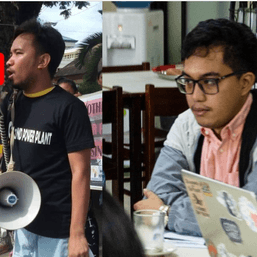
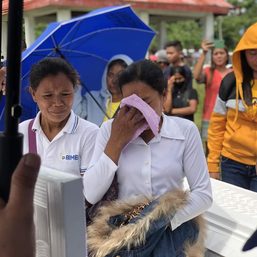
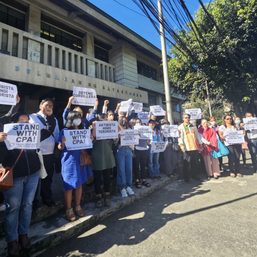
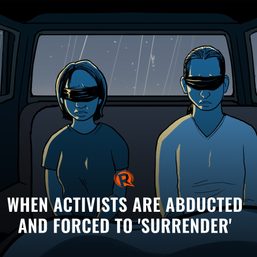


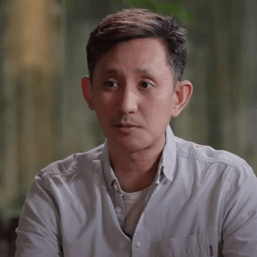
![[WATCH] Dahas Project, the team that continues to count drug war victims](https://www.rappler.com/tachyon/2024/03/dahas-project-2.jpg?resize=257%2C257&crop=404px%2C0px%2C1080px%2C1080px)




There are no comments yet. Add your comment to start the conversation.